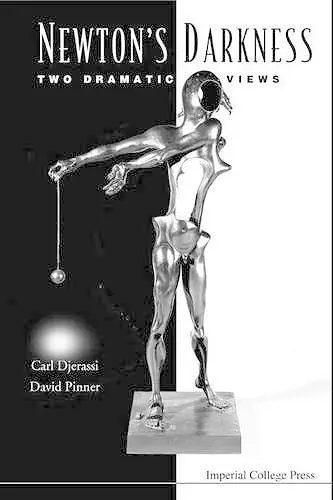Newton's Darkness: Two Dramatic Views
David Pinner editor Carl Djerassi editor
Format:Hardback
Publisher:Imperial College Press
Published:21st Oct '03
Currently unavailable, our supplier has not provided us a restock date

”What purpose is served by showing that England's greatest natural philosopher is flawed … like other mortals?” asks one of the characters in Newton's Darkness. “We need unsullied heroes!” But what if the hero is sullied? At stake is an issue that is as germane today as it was 300 years ago: a scientist's ethics must not be divorced from scientific accomplishments. There is probably no other scientist of whom so many biographies and other historical analyses have been published than Isaac Newton — all of them in the standard format of documentary prose because of their didactic purpose to transmit historical information. Newton's Darkness, however, illuminates the darker aspects of Newton's persona through two historically grounded plays dealing with two of the bitterest struggles in the history of science.The name of Isaac Newton appears in virtually every survey of the public's choice for the most important persons of the second millennium. Yet the term “darkness” can be applied to much of Newton's personality. Adjectives that have been used to describe facets of his personality include “remote”, “lonely”, “secretive”, “introverted”, “melancholic”, “humorless”, “puritanical”, “cruel”, “vindictive” and, perhaps worst of all, “unforgiving”. The trait most relevant to the present book is Newton's obsessively competitive nature, which was often out of proportion to the warranted facts, as demonstrated in three of Newton's best-known bitter conflicts: with the physicist Robert Hooke, the astronomer royal John Flamsteed, and a German contemporary of almost equal intellectual prowess, Gottfried Wilhelm Leibniz — the last fight eventually turning into an England vs Continental Europe competition. It is two of these three relentless drawn-out battles that are illuminated in Newton's Darkness in the form of historically grounded drama.After a summary of the historical evidence, the book starts with the Newton-Hooke struggle (Chapter 2), which was conducted mano a mano, and is then followed by little-known aspects of the Newton-Leibniz confrontation (Chapter 3), which was fought largely through surrogates — notably the infamous, anonymous committee of 11 Fellows of the Royal Society.
"These two dramas brilliantly integrate Newton's battle with Leibniz over who invented the calculus and his tussles with Robert Hooke about just about everything else, by differentiating those scientific and human qualities that made Newton quite the limit." John D Barrow Professor of Mathematical Sciences, Cambridge University author of "The Constants of Nature: From alpha to omega" "A dramatic insight into the complex mind of a scientific genius. This play-book reveals Newton in all three dimensions." Baroness Greenfield Director, The Royal Institution "The theatricality of science often eludes us -- this book captures the boldness, idiosyncrasy and sheer breathtaking drama of Newton's genius." Lisa Jardine Professor of Renaissance Studies at Queen Mary College, University of London author of "The Curious Life of Robert Hooke: The Man Who Measured London" "All apart from its Thespian aspects, it presents about as thoroughgoing an account of the Newton-Leibniz affair as any I've encountered over the years. Altogether, a fine integration of theater and history." Robert K Merton Professor Emeritus, Columbia University and author of "On the Shoulders of Giants" "I highly recommend reading 'Newton's Darkness: Two Dramatic Views' ... There is hardly a better way to promote science literacy than through the mingling of science and art, as accomplished in these plays." Chemical & Engineering News "... both plays should appeal to students and general readers interested in biography and the history of science and literature ... We give Newton's Darkness, two enjoyable, engrossing, and above all, provocative and thought-provoking plays, an enthusiastic two thumbs up." The Chemical Educator "We found the plays to be enjoyable, engrossing, provocative, and thought-provoking, and we heartily recommend them to students and general readers interested in biography and the history of science and of literature as well as theater-goers." Angewandte Chemie International Edition
ISBN: 9781860943898
Dimensions: unknown
Weight: unknown
192 pages